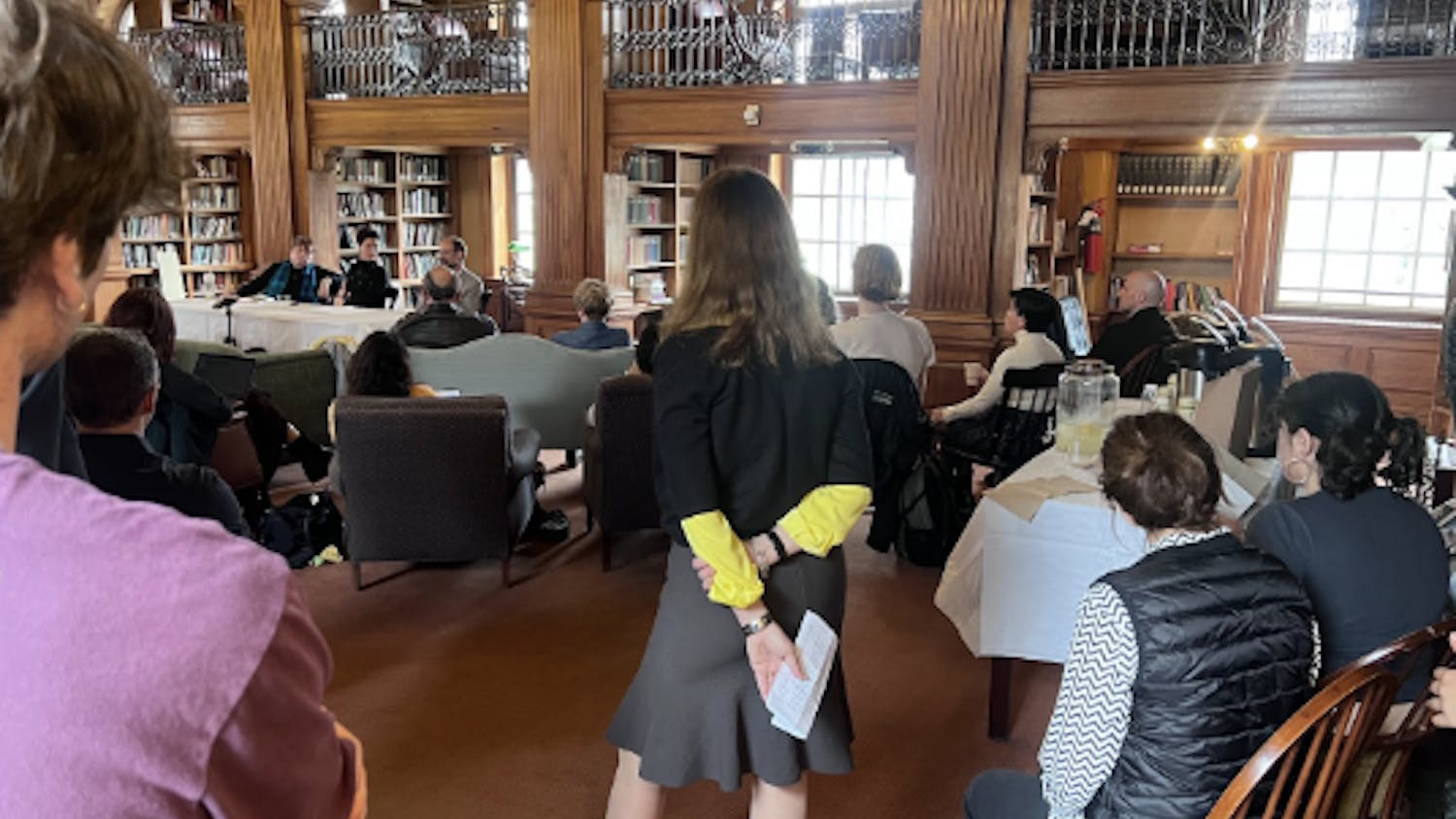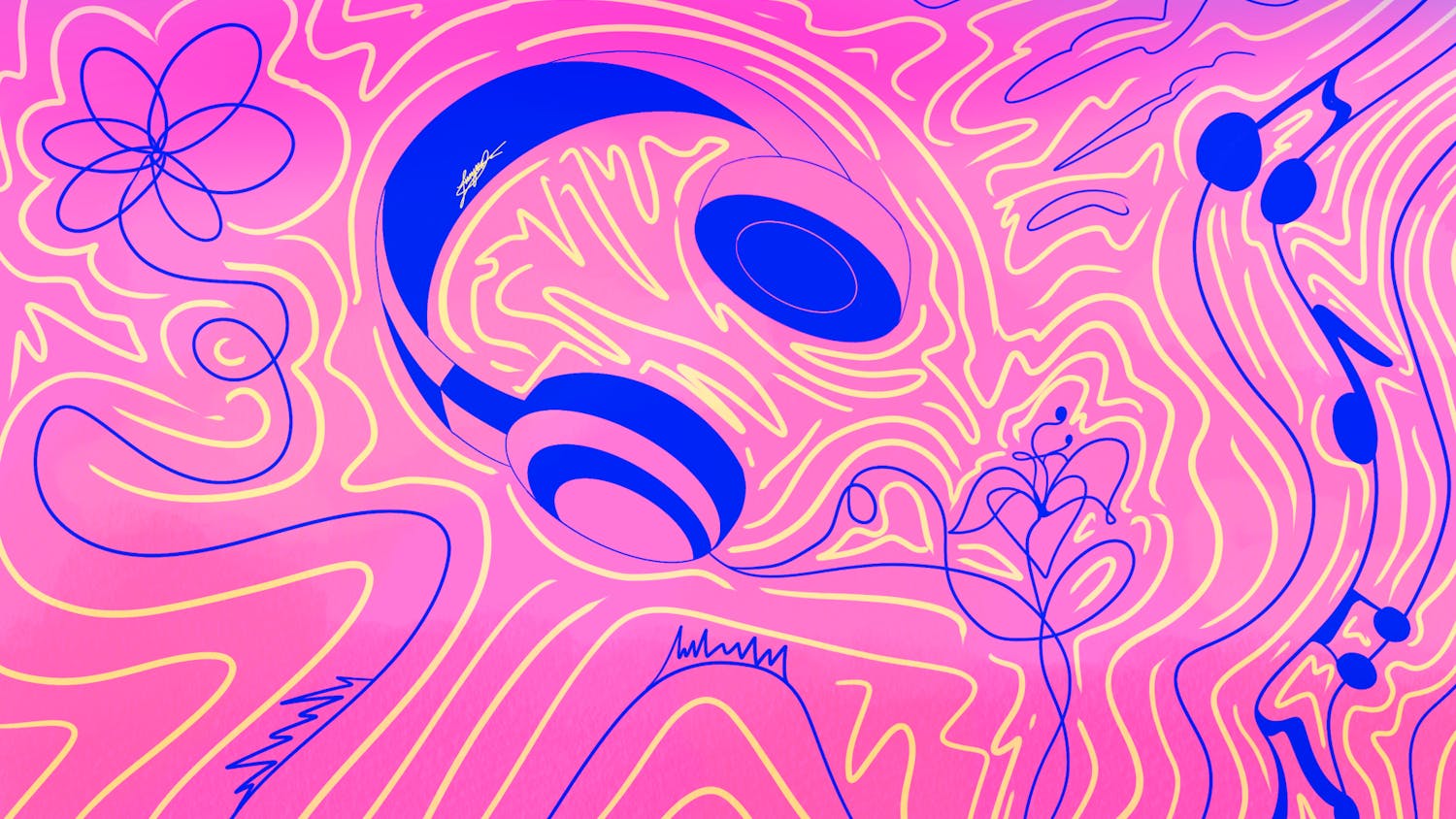Sacred Steel, the art of playing pedal steel guitar, has been around for decades. It was confined to mainly religious settings for many years -- until now. Robert Randolph has brought the instrument to the forefront of music and jam band culture specifically. His band, Robert Randolph and The Family Band, is one of the best live acts in music today, and fortunately for us, they aren't too big -- yet.
With both of his parents in the ministry, Randolph grew up playing Sacred Steel at his parents' church. On his own he combined elements of funk, R & B and the influence of his idol, the late Stevie Ray Vaughan. He was "discovered" at the First Annual Sacred Steel convention in Florida in 2000 and started playing his first professional gigs in a small bar in the East Village of New York City.
Randolph first played the pedal steel guitar at the age of 16 when a friend bought him a $60 six-string guitar. He credits the instrument with saving his life in the rough neighborhood of Irvington, N.J., in which he was raised. He would play for days on end, moving up to the 10-string model and finally to his present model, a 13-string pedal steel guitar.
A turning point in his early career came in 1998 when a friend gave him a tape of Vaughan. Randolph decided that he wanted to play guitar like Vaughan, taking his sound beyond the church. Although he knew his move from the church to concert halls would be controversial, Randolph chose to follow his dream and still incorporate elements of religious material in his shows.
The pedal steel guitar is an interesting instrument that looks much like a table. It has pedals and levers that control different aspects of the sound. The player uses a movable fret in the left hand that looks like a metal bar to change the pitch of the notes. On the right hand, the artist wears a series of rings with picks on them to pluck the 13 strings. Randolph uses a box of these rings to change the length and sound of each note.
Randolph's playing is unlike anything popular music has seen before. It combines elements of country, funk and rock to produce a sound that defies classification. His riffs are all his own and they have a bone-rattling power that must be felt for one to understand.
With The Family Band's lineup composed of cousins Danyel Morgan and Marcus Randolph on bass and drums, respectively, as well as John Ginty on organ, Randolph set out to test the waters of the New York City club scene. The band opened for the North Mississippi Allstars at the Bowery Ballroom, and the Allstars liked what they heard from Randolph and his band. Also in attendance was John Medeski, organ player of the jazz-jam trio Medeski, Martin and Wood. Medeski had already been thinking about putting together a gospel-oriented instrumental project, and Randolph was the final piece.
That project, called The Word, consisted of Randolph, Medeski and the Allstars. They released an album on the Ropeadope label and followed-up with two hugely successful U.S. tours. Randolph had finally arrived on the music scene.
For Robert and his band, the only direction was up. Since the beginning of 2001, they have been a veritable touring machine playing both coasts, universities, festivals and famous venues like Irving Plaza, The Wetlands and Madison Square Garden. Randolph has sat in with some of the biggest acts in the jam scene, such as The String Cheese Incident, The Allman Brothers Band and The Dave Matthews Band.
His two hour-long sets at the Bonnaroo Music Festival in Manchester, Tenn., in June of this past summer were regarded as outstanding by fans in attendance. The performances probably catapulted Randolph to winning New Groove of the Year at The Jammys -- the Grammys of the jam band scene -- held Oct. 2 at Roseland Ballroom in New York City.
His live shows are overwhelming because of the emotion between the band and its audience. The show at Higher Ground in Winooski, Vt., was one of these.
The show started out with a traditional prayer that Robert usually says to thank God for allowing him and his audience to have the opportunity to come together for this concert. This might seem odd to the more secular listener, but religious or not, the band offers an acute sense of spiritual importance.
Randolf then started the show with an up-tempo number that got the place rocking. When he finished the first song, he instructed all those people who did not want to dance and have a good time, as he does at most shows, to find the exit sign and leave.
The first set featured a variety of typical Randolph tunes like the fiery "Calypso" and the anthem of love, "The March." The latter tune he introduced as the "universal march of love, peace and freedom," and he then instructed the audience how to do the dance accompanying the song. Some of my friends were apprehensive about doing the dance at first, but Randolph removed any feeling of discomfort through his encouraging words and interaction with the crowd.
"Robert and the entire band really made an effort to connect with the crowd and to draw them in with their music and energy," Michael Pipkin '05 said.
Randolph then launched into his raucous cover of Jimi Hendrix's "Voodoo Chile." His version does great justice to Hendrix and sometimes sounds as if Randolph wrote the song himself. Midway through the song's jam, Randolph broke into an amazing Black Sabbath medley of "Iron Man" and "War Pigs," echoing Ozzy Osbourne's lyrics with his guitar.
When his guitar malfunctioned in the last song of the set, Randolph improvised as best he could and picked up an acoustic guitar and started picking wildly. The rest of the band, though, never missed a note and carried the tune in his absence. Ginty in particular was remarkably adept at holding the rhythm together.
For the encore, Randolph played "Pressing My Way," probably one of the best songs written anywhere in the last few years. Randolph and his band poured all their energy into this somber tune about hope when times are tough. He prefaced the song: "Whenever you have hard times in your life, all you have to say to yourself is 'Press On' and everything will be all right."
"He exuded unity and positivism, and everyone there had that connection. His music is all about feeling good: sort of a soul food, if you will," Leigh Gerson '05 said.
The show at Higher Ground was a semi-religious, euphoric, trippy, head-banging party. But it was completely pure and peaceful: no fights, no crowd-surfing, no disrespectful actions by the audience. It was just 200 people having a good time.
Robert Randolph gives the kind of show that will have you talking for days and scurrying to find any recording of the band. Randolph is an artist on the cusp of musical stardom, and the prudent music enthusiast would be well-advised to start looking for an opportunity to attend a live performance.



